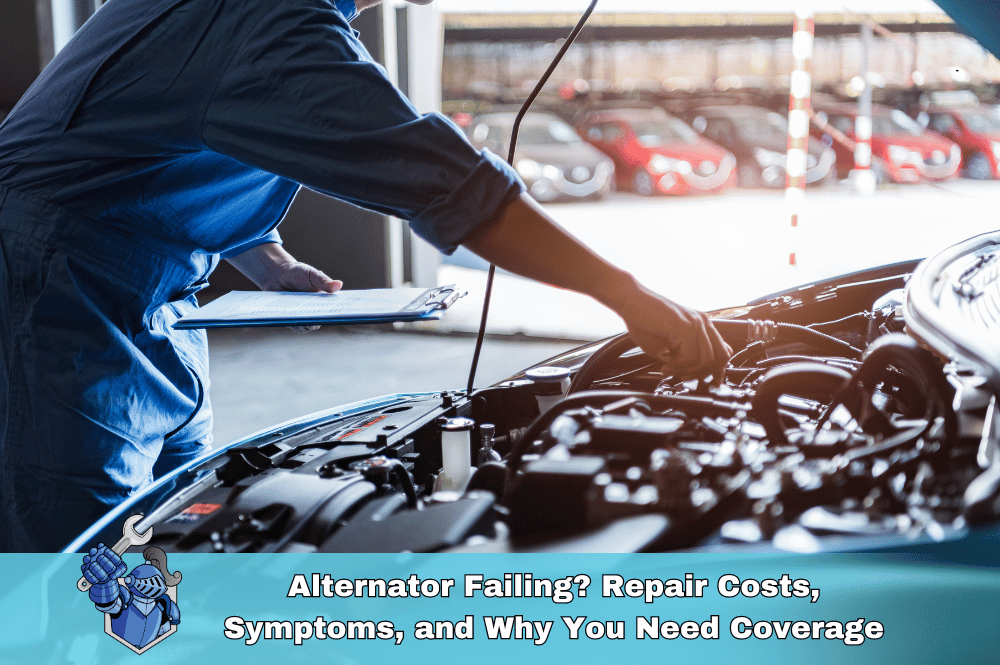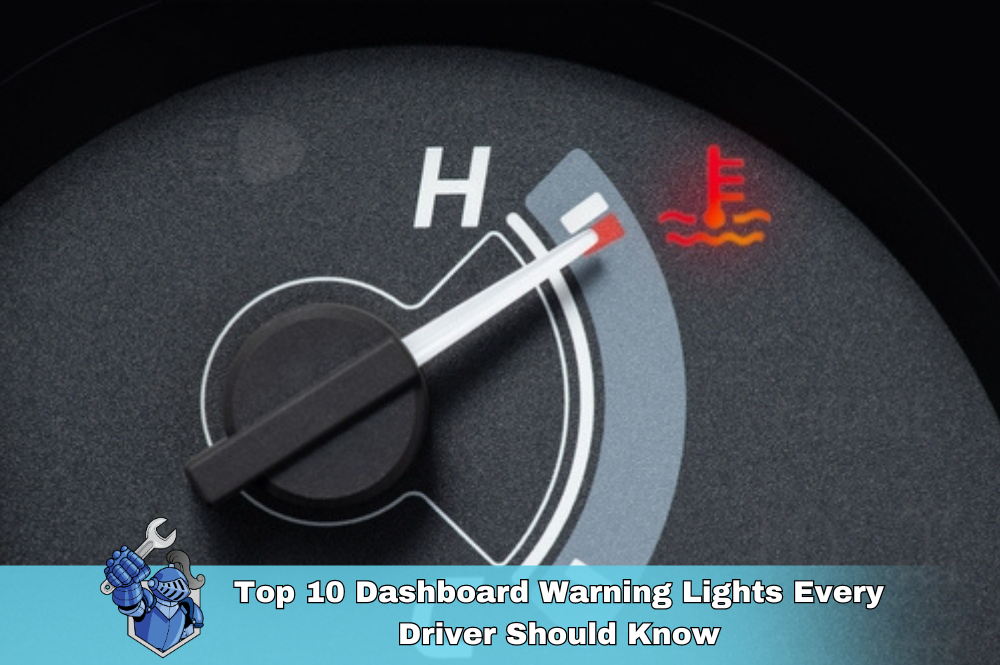Common signs include slipping gears, delayed engagement, grinding or clunking noises, fluid leaks, and a burning smell.
Your vehicle's transmission is one of its most crucial components, responsible for shifting gears and transferring power from the engine to the wheels. When your transmission starts to show signs of trouble, it can lead to costly repairs and potentially leave you stranded. Understanding the early signs of transmission problems and their causes can help you take action before the damage becomes severe. In this article, we’ll explore the top 5 reasons your transmission may be failing and provide expert tips to keep your transmission in good shape.
1. Low or Contaminated Transmission Fluid
One of the primary reasons for transmission failure is low or contaminated transmission fluid. Transmission fluid is essential for lubricating and cooling the transmission components. Over time, the fluid can become dirty or diminish due to leaks, neglect, or prolonged use, which leads to inadequate lubrication and increased heat. Common symptoms of low transmission fluid include transmission slipping, unusual noises when shifting gears, and a burning smell from the car.
To prevent transmission failure, it’s crucial to regularly check your transmission fluid level and quality. If the fluid appears dark or has a burnt smell, it may be time for a transmission fluid change. Maintaining proper fluid levels and following a regular transmission maintenance schedule can significantly extend the life of your transmission.
2. Transmission Overheating
Overheating is a major cause of transmission problems and can lead to complete transmission failure if not addressed. Transmission overheating can occur due to low fluid levels, driving in extreme heat, towing heavy loads, or using the wrong type of transmission fluid. When the transmission overheats, it can cause the fluid to break down and lose its lubricating properties, resulting in increased friction and damage to internal components.
Signs of an overheating transmission include a transmission warning light, a burning smell from the car, and slipping gears. To prevent overheating, ensure your transmission has adequate fluid levels, avoid overloading your vehicle, and consider installing a transmission cooler if you frequently tow heavy loads.
3. Transmission Fluid Leaks
Transmission fluid leaks are a common cause of transmission failure and can occur due to worn-out seals, gaskets, or a cracked transmission pan. When transmission fluid leaks, it reduces the fluid level, leading to inadequate lubrication and cooling. Common signs of a transmission fluid leak include puddles of red or brown fluid under your car, low fluid levels, and difficulty shifting gears.
Regularly inspect your vehicle for signs of leaks, such as fluid spots on your driveway or garage floor. If you notice a leak, it’s essential to address it immediately by replacing worn seals and gaskets. Timely repairs can prevent leaks from causing more significant damage to your transmission.
4. Faulty Transmission Solenoids
Transmission solenoids play a critical role in controlling the flow of transmission fluid within the transmission system. When solenoids malfunction, it can lead to erratic shifting, transmission slipping, and failure to engage gears properly. Symptoms of faulty solenoids include the transmission warning light or check engine light appearing on your dashboard and difficulty shifting gears.
If you experience these symptoms, it’s essential to have your vehicle inspected by a professional. Diagnosing and replacing faulty solenoids can restore proper transmission function and prevent further damage.
5. Neglecting Regular Maintenance
Neglecting regular transmission maintenance is one of the leading causes of transmission failure. Many transmission problems arise from skipping scheduled maintenance, ignoring warning signs, and failing to address minor issues before they escalate. Regular maintenance, such as transmission fluid changes, inspections, and prompt repairs, can help detect early signs of wear and prevent costly repairs.
Following your vehicle manufacturer’s recommended maintenance schedule and paying attention to any changes in your car’s performance can extend the life of your transmission and keep it running smoothly.
Conclusion
Transmission problems can be both costly and inconvenient, but understanding the common causes and taking proactive steps can help you avoid major issues. Regular maintenance, prompt attention to warning signs, and addressing minor repairs can go a long way in ensuring your transmission remains in good working condition. If you experience any of the symptoms mentioned above, consult a qualified mechanic to diagnose and fix the problem. A well-maintained transmission is key to a safe and reliable driving experience.
Please visit the NobleQuote Learning Center for additional information.
Understanding Transmission Troubles: Your Questions Answered
What are the most common signs of transmission failure?
Can low transmission fluid cause my transmission to fail?
Yes, low fluid levels can lead to overheating, increased wear and tear, and eventually transmission failure.
How often should I change my transmission fluid?
It varies depending on the make and model of your vehicle, but generally every 30,000 to 60,000 miles. Consult your owner's manual for specific recommendations.
Is it expensive to repair or replace a transmission?
Yes, transmission repairs and replacements can be costly. It's important to address any issues early on to avoid more extensive damage.
Can I still drive my car if I suspect a transmission problem?
It's best to avoid driving if you suspect a transmission issue, as it can worsen the damage. Have your car inspected by a qualified mechanic as soon as possible.
What are some preventative measures I can take to extend the life of my transmission?
Regular fluid changes, avoiding aggressive driving, and having your transmission inspected at recommended intervals are crucial for preventative maintenance.
Can a transmission problem affect my car's fuel economy?
Yes, a failing transmission can lead to decreased fuel efficiency due to increased friction and slippage.
Are there any warning lights on my dashboard that indicate a transmission problem?
The check engine light or a specific transmission warning light may illuminate if there's an issue. However, sometimes there are no warning lights at all.
Can I fix my transmission myself, or do I need a professional mechanic?
Transmission repairs are complex and require specialized knowledge and tools. It's best to leave it to a qualified mechanic.
What should I do if my transmission fails while I'm driving?
Pull over to a safe location as soon as possible. Call a tow truck to have your car transported to a repair shop.
Suggestions for you
Read MoreLet’s work together
Every week we showcase three charitable organizations that our donations are sent to. Our clients are able to choose which of these three will receive their gift when they add coverage to their vehicle...


 The Ultimate Guide to Vehicle Airbags: Everything You Need to Know to Stay Safe
The Ultimate Guide to Vehicle Airbags: Everything You Need to Know to Stay Safe Alternator Failing? Repair Costs, Symptoms, and Why You Need Coverage
Alternator Failing? Repair Costs, Symptoms, and Why You Need Coverage Top 10 Dashboard Warning Lights Every Driver Should Know
Top 10 Dashboard Warning Lights Every Driver Should Know Top Reasons Your Car Radiator Might Fail and How to Prevent Costly Repairs
Top Reasons Your Car Radiator Might Fail and How to Prevent Costly Repairs Understanding Car Starters: Common Issues, Repair Costs, and How to Protect Your Vehicle
Understanding Car Starters: Common Issues, Repair Costs, and How to Protect Your Vehicle Understanding and Protecting Electric Vehicle Batteries: A Comprehensive Guide
Understanding and Protecting Electric Vehicle Batteries: A Comprehensive Guide Keep Your Engine Cool: The Must Have Guide to Car and Truck Water Pumps
Keep Your Engine Cool: The Must Have Guide to Car and Truck Water Pumps The Importance of Choosing the Right Fuel for Your Vehicle: Why It Matters and How It Affects Your Auto Warranty
The Importance of Choosing the Right Fuel for Your Vehicle: Why It Matters and How It Affects Your Auto Warranty

